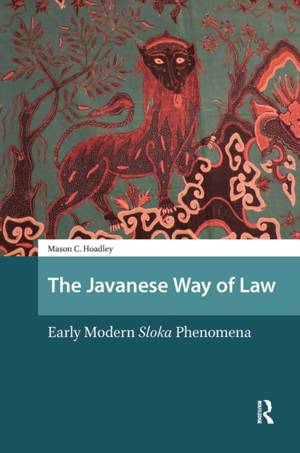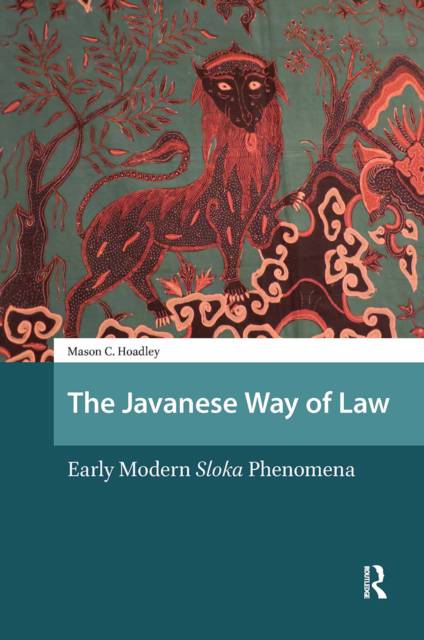
- Afhalen na 1 uur in een winkel met voorraad
- Gratis thuislevering in België vanaf € 30
- Ruim aanbod met 7 miljoen producten
- Afhalen na 1 uur in een winkel met voorraad
- Gratis thuislevering in België vanaf € 30
- Ruim aanbod met 7 miljoen producten
Zoeken
€ 162,45
+ 324 punten
Omschrijving
Traditional Javanese law of the pre- and early-colonial period does not draw upon the contents of recognized texts, but -- as preserved and often explained in those texts -- on maxims (sloka/saloka) containing the essence of law expressed in pithy, easily remembered phrases, many of which live on as modern Javanese proverbs.
Specificaties
Betrokkenen
- Auteur(s):
- Uitgeverij:
Inhoud
- Aantal bladzijden:
- 276
- Reeks:
Eigenschappen
- Productcode (EAN):
- 9789462989337
- Verschijningsdatum:
- 27/08/2019
- Uitvoering:
- Hardcover
- Afmetingen:
- 241 mm x 161 mm
- Gewicht:
- 588 g

Alleen bij Standaard Boekhandel
+ 324 punten op je klantenkaart van Standaard Boekhandel
Beoordelingen
We publiceren alleen reviews die voldoen aan de voorwaarden voor reviews. Bekijk onze voorwaarden voor reviews.








